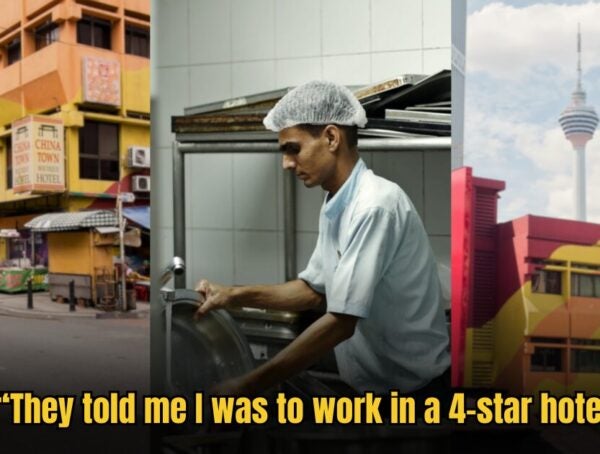In recent months we’ve had a spate of outrage-inducing headlines in the media.
These assumptions, peddled as #fact, make Malaysia look like a poor man’s imitation of South-East Asian cuisine – when that couldn’t be further from the truth.
I’m talking, of course, about Singapore being named the best place in the world for street food by CEO World magazine.
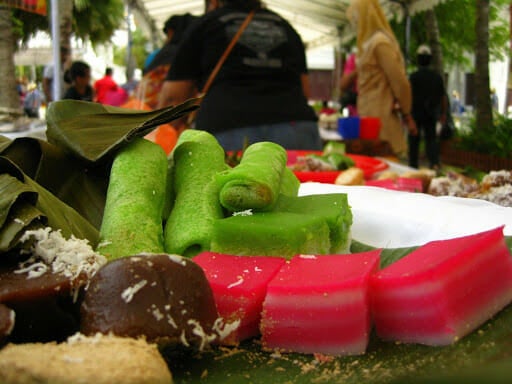
Ignored again – Naturally.
I’ll be honest, when I heard the news, I could only muster enough energy to roll my eyes. It isn’t the first time Malaysia got snubbed by western media, and it won’t be the last.
Remember the time CNN thought cendol was a Singaporean dessert? Or when Netflix did a special on South East Asian street food but inexplicably left out Malaysia?
Even Singaporeans themselves are wondering how they managed to get to No.1 on the list. Some would even admit they get their street food fix from across the causeway in JB.
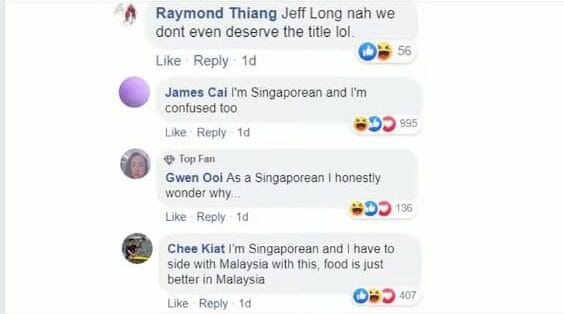
[source: gajen nad]
Meanwhile, Malaysia gets world coverage for all the wrong reasons. Maybe it’s time we step up our PR efforts instead of getting mad.
The Survey is Flawed
If you look closer, the survey was based on the opinions of 74,000 businessmen. Here, I’ll cut them some slack; when it comes to street food, you can’t really expect angmoh CEOs to know what they’re talking about lah.
CEOs aren’t really the type of people to always be sitting in the kopitiam, after all.
But when I saw that hygiene was one of the criteria, I paused. Remember the time when some restaurant workers in Bangsar were found washing plates in dirty longkang water?
Malaysia has a pretty terrible record for food hygiene across the board, whereas Singapore is famous for being as clean as a bottle of antiseptic.
What if our ranking got pulled down because of our hygiene issues? I wouldn’t be surprised.
Meanwhile as the most ‘westernised’ city in Asia, Singapore is seen as the best Asian city to live (as an expat, of course – as a Malaysian, not so much).
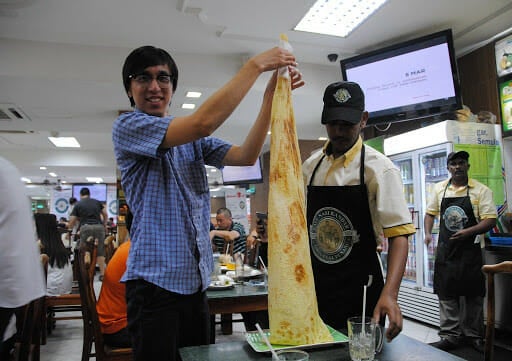
[the legendary roti tissue – or roti tower of pisa as i like to call it]
Singapore and Malaysia’s Shared Heritage
The truth is, it was less than 60 years ago that Singapore and Malaysia were the same country.
Before independence, Singapore and Malaysia shared a very common heritage that goes back to the 1800s and earlier.
In the 15th century, the straits of Malacca became a major means of trade for the Malaysian people.
Merchants from India, Arabia, and China brought with them an in-depth supply of herbs and spices and began trading them with the local Malays.
Thanks to this free trade, we were able to incorporate a variety of new spices into our food, which became the basis for the many popular dishes that are served today.
Singapore was part of this cultural mixing, having been part of the Malayan archipelago for centuries. It was only relatively recently that they became a sovereign state.
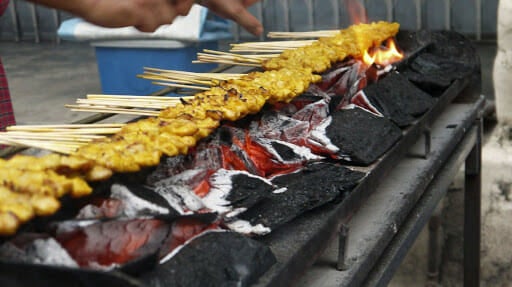
So really, the foods that our Malay, Chinese, and Indian ancestors made together, are basically what Singapore’s street food is made out of.
That’s a fact that’s pretty much accepted – on both sides of the causeway.
Street food transcends national boundaries
Let’s get past this debate about which food comes from where – these modern borders were here for no more than 60 years, whereas these cultures and dishes have been around for centuries.
Take cendol for example. Cendol is a Chinese-Malayan dessert, created to suit Chinese immigrant tastebuds with Malayan ingredients. It pre-dates the British occupation.
Cendol is popular in straits settlements like Penang, Melaka, and Singapore. It didn’t originate from any one of these places.
It was simply passed down, from generation to generation.
For the people getting upset by Singapore claiming it – What would you say to the Singaporeans’ great grandparents who’ve had these dishes for generations?
How about Nasi Lemak? Seems unreservedly Malaysian, right?
But then why does Singapore have it, and why does Indonesia have its own variant too?
Truth is, its nearly impossible to ascertain the ‘true’ origins of Nasi Lemak, according to this Malay scholar. That’s ‘cos we all have it, and we all prepare and experience it differently.
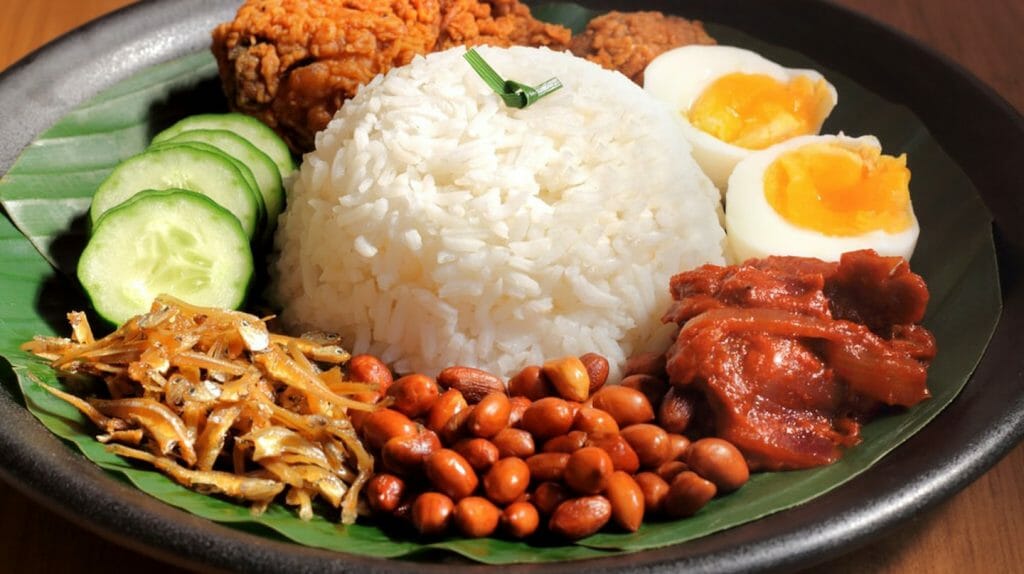
Let’s be proud of our food heritage – Together!
To be honest, I don’t care much about Western rankings.
We Malaysians seem to spend an overly lengthy amount of time trying to “wow” the western world – almost as if we never moved past currying favor with our former colonial masters – even 60 years on.
Thankfully, we don’t need the approval of a random listicle site to know we’ve got the best food in South East Asia – if Singapore wants to claim it, let them claim it.
Really, the reason why we’ve never lost our spot as the true king of street food is because its Asia’s best kept secret. Shh!
For more articles on Malaysian food culture, read If Malaysian Waiters were Honest, Here’s What We Would Say to Our Customers and Customer Etiquette: 4 Do’s and Don’ts According to a Server.

You might also like
More from Real People
‘A RM100 fee cost a company 5 years of revenue’ shares M’sian
This story is about a Malaysian who learned that bureaucracy can be defeated simply by not arguing with it.A billing …
‘I quiet-quit, upskilled, and tripled my salary,’ shares M’sian engineer
This story is about a Malaysian who learned that loyalty without leverage leads nowhere in the corporate world.After years of …
‘I did everything right, and it still wasn’t enough’ shares M’sian graduate
This story is about a Malaysian graduate navigating big dreams in a job market where a degree no longer guarantees …








